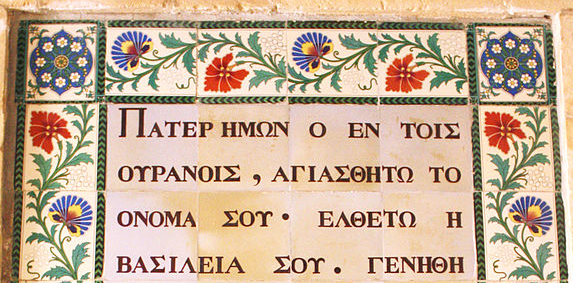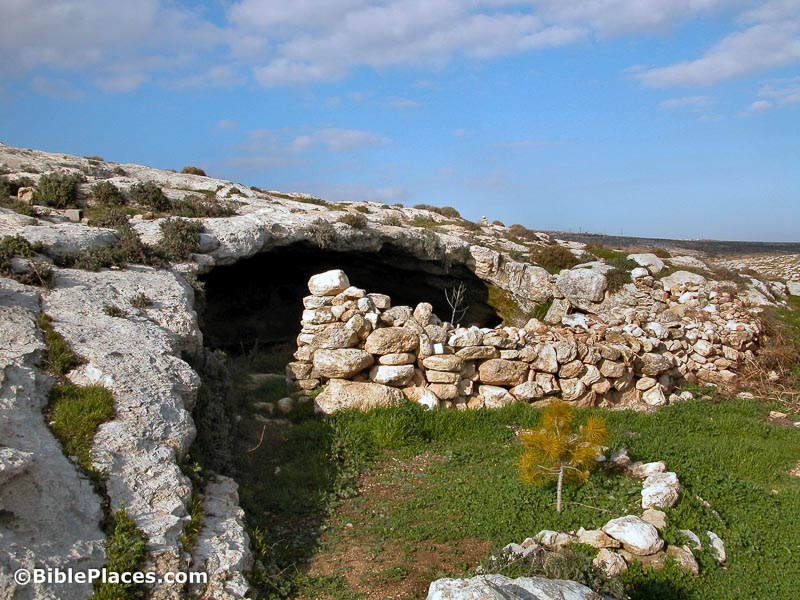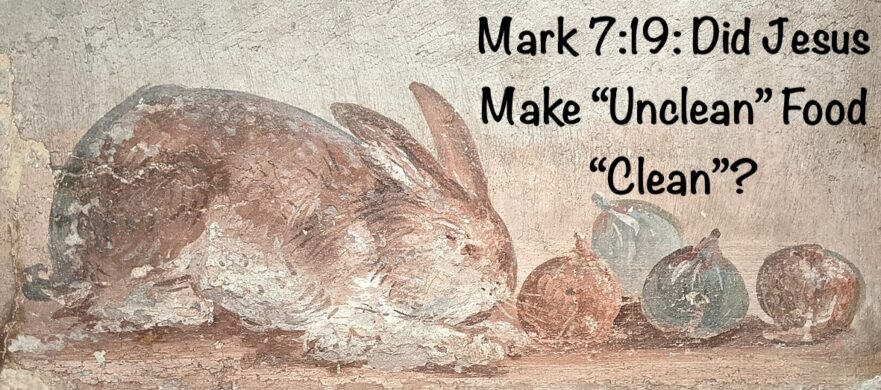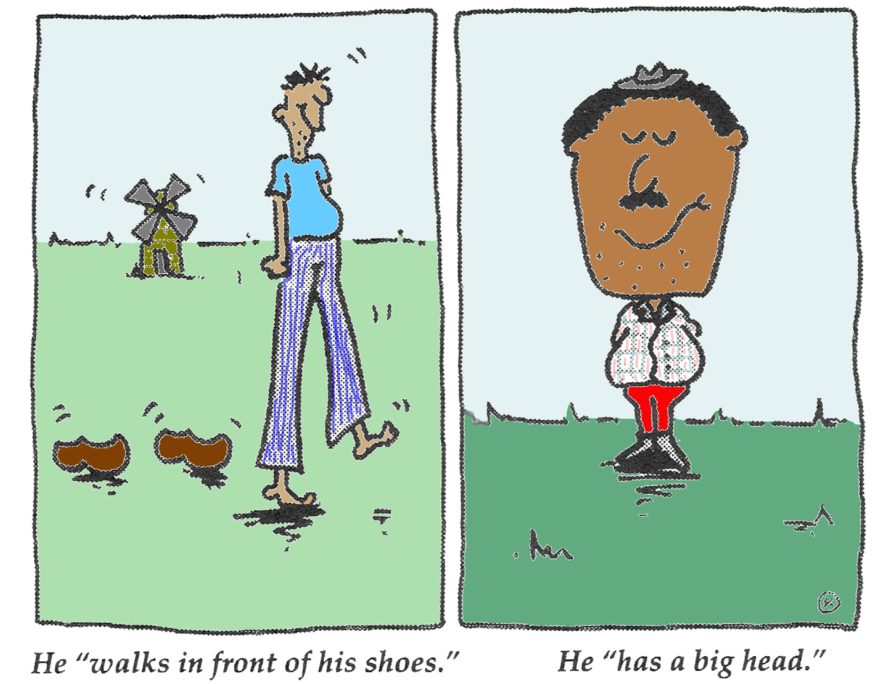Matt. 3:7-10; Luke 3:7b-9 (Huck 2; Aland 14; Crook 17)For abbreviations and bibliographical references, see “Introduction to ‘The Life of Yeshua: A Suggested Reconstruction.'”…
Comment
L1-2 ἰδὼν δὲ πολλοὺς τῶν Φαρεισαίων καὶ Σαδδουκαίων (Matt. 3:7). … Scholars who regard the reference to Pharisees and Sadducees in Matt. 3:7 as a Matthean insertion include Harnack, 40; Manson, Sayings, 39; Davies-Allison, 1:301; Catchpole, 8; Nolland, Matt., 142; Luz, 1:137.The author of Matthew mentioned the Sadducees far more frequently than did the other Gospel writers (Matt. 7xx; Mark 1x; Luke 1x),The Sadducees are mentioned in Matt. 3:7; 16:1, 6, 11, 12; 22:23, 34; Mark 12:18; Luke 20:27. … Moreover, Matthew is the only Synoptic Gospel to portray cooperation between the Pharisees and Sadducees (Matt. 3:7; 16:1, 6, 11, 12), whereas the ancient sources testify that the Pharisees and Sadducees were highly antagonistic toward one another (cf., e.g.,
AcademicAdvanced ReadingAgricultureBaptismCommentaryDavid BivinDouble Tradition pericopaeExposition of ScriptureFlora and FaunaGospel of LukeGospel of MatthewHebrew ReconstructionJohn the BaptistLauren S. AsperschlagerLOY CommentaryRepentanceRewards and PunishmentsTransmission of the Life of Jesus
The recording below is of a sermon preached on November 4, 1995 by Halvor Ronning at Jerusalem’s historic Narkis Street Congregation.
— /wp:paragraph –> The deceptively simple petition from Matthew 6:11, “Give us this day our daily bread,” has been a matter of controversy for centuries. … (Matt. 6:33-34) Jesus was adamant concerning anxiety about the future: Do not be anxious about your life, what you will eat or drink, nor about your body, what you will put on. … (Matt. 6:25-26) To read the next article in this series, click here. Matthew 6:10 makes the same point: “Your Kingdom come, your will be done in heaven and on earth.” How to cite this article: JP Staff Writer, “Failures of the Aramaic Solution: Aramaic’s Inability to Explain Jesus’ Halachic Questions on the Sabbath (Luke 14:5; Matt. 12:11-12a),” Jerusalem Perspective (2022) . Updated: 14 December 2022
As an adult, Jesus, at the beginning of his ministry, quotes three times from this book in mustering spiritual support in response to the three temptations of Satan (Matt. 4:1-11). (Avot 2:4) There is a striking similarity between this saying and the sayings of Jesus in Matthew 6:10 (“Let your will be done in heaven and on earth”)For a discussion of the rabbinic background to the entreaty, “Let your will be done in heaven and on earth,” see Brad Young, “The Lord’s Prayer (6): ‘Thy Will Be Done,'” Jerusalem Perspective 14 (Nov. 1988): 1-2. In past articles I have tried to demonstrate that at points the writings of the Qumran library are important for recognizing the Hebraic linguistic milieu for the vocabulary of the New Testament. Beyond these linguistic parallels, however, modern scholarship has attempted to identify whether there existed direct contact between the Essene Congregation and figures in the New Testament. Nor would he have taught others to violate the commandments since he himself taught, “Anyone who breaks them or teaches others to break them will be called ‘light’ ” (Matt 5:19). As a small boy growing up in Alabama I had a deep love of God and a real hunger to know him better. By the age of eight I had read the entire Bible. But, like most people, I often struggled to understand what the Scriptures were saying. Many verses didn’t seem to make sense. One of the first verses to puzzle me was the verse that is perhaps the best-known verse in the New Testament, John 3:16: “For God so loved the world that He gave His only begotten Son, that whoever believes in Him should not perish but have everlasting life” (NKJV). Traditionally, the beatitude found in Matthew 5:10 is read as “blessed are those who are persecuted because of righteousness, for of such is the kingdom of heaven.” … The other New Testament examples of ἕνεκεν (heneken, “because of”) with a noun refer to a reason for an action, never to the desired goal of an action (i.e., not “to pursue after righteousness”): Matt. 5:11; 10:18, 39; 16:25; 19:29; Mark 8:35; 10:7, 29; 13:9; Luke 9:24; 10:29; 21:12; Acts 28:20; Rom. 14:20; (2 Cor. 7:12, purpose clause with infinitive). According to the RSV, Jesus said: “Love your enemies and pray for those who persecute you, so that you may be sons of your Father who is in heaven; for he makes his sun rise on the evil and on the good, and sends rain on the just and on the unjust” (Matt. 5:44-45)…. Without the benefit of Matt. 5:45, one could argue only with difficulty that the saying in Song Zuta constitutes half of what was probably originally a parallelism. The text of Matthew 6:22-23 literally reads: “The lamp of the body is the eye. … Only James Moffatt translates “good eye” as “generous,” but even he uses “sound” in the Lukan parallel to Matthew 6:22 (The same Greek word for “good” appears in both places.) Apparently, by the time Moffatt reached Luke 11:34 he was already beginning to have some doubts about his translation of Matthew 6:22. (Matt. 6:27; Luke 12:25). You are studying your Bible and you read Jesus’ words in Matthew 6:22-23, “The light of the body is the eye: if therefore thine eye be single, thy whole body shall be full of light. … Such a search will turn up articles, blogs, or posts (in Jerusalem Perspective Online’s Discussion Forum) that have discussed the word (for example, “single eye”) or Scripture (for example, “Matthew 6:22-23) for which you are looking. I had grown up with several teachings about Jesus’ fulfillment of the law of Moses, but this article clearly pointed out that if Jesus had communicated this in his mother-language and those words were translated into English we would probably have a completely different understanding of Matthew 5:17. … If you haven’t read Matthew 5:17: “Destroy” the Law, I highly recommend you allow it to “engage” you! Here are some examples: Matt 6:19-21 or Matt 6-9 Dwelling or Matt 6-9 NOT Dwelling To see more examples and to learn how to capitalize on this new power, we’ve created a special page.
Matthew 5:6: Jesus, the King of Righteousness
The Lord’s Prayer 7: “Give Us This Day Our Daily Bread”

The Kingdom of God: God’s Power Among Believers

Failures of the Aramaic Solution: Aramaic’s Inability to Explain Jesus’ Halachic Questions on the Sabbath (Luke 14:5; Matt. 12:11-12a)

The Shema in Early Jewish Teaching

Rabbinic Literature: A Spiritual Treasure for Christians

Jesus and the Essene Passover

Mark 7:19: Did Jesus Make “Unclean” Food “Clean”?

The “Only Begotten” Son
Pursuing Righteousness

Sunshine For Everybody

Tutorial 1: Significance of Idioms

To Be, or Not to Be, in the Driver’s Seat?
Private: JerusalemPerspective.com Can Help You Find Answers!
Engaged: Clarifying A Few Words (over Mexican Dinner)

JPs New Search Could Transform Your Study


